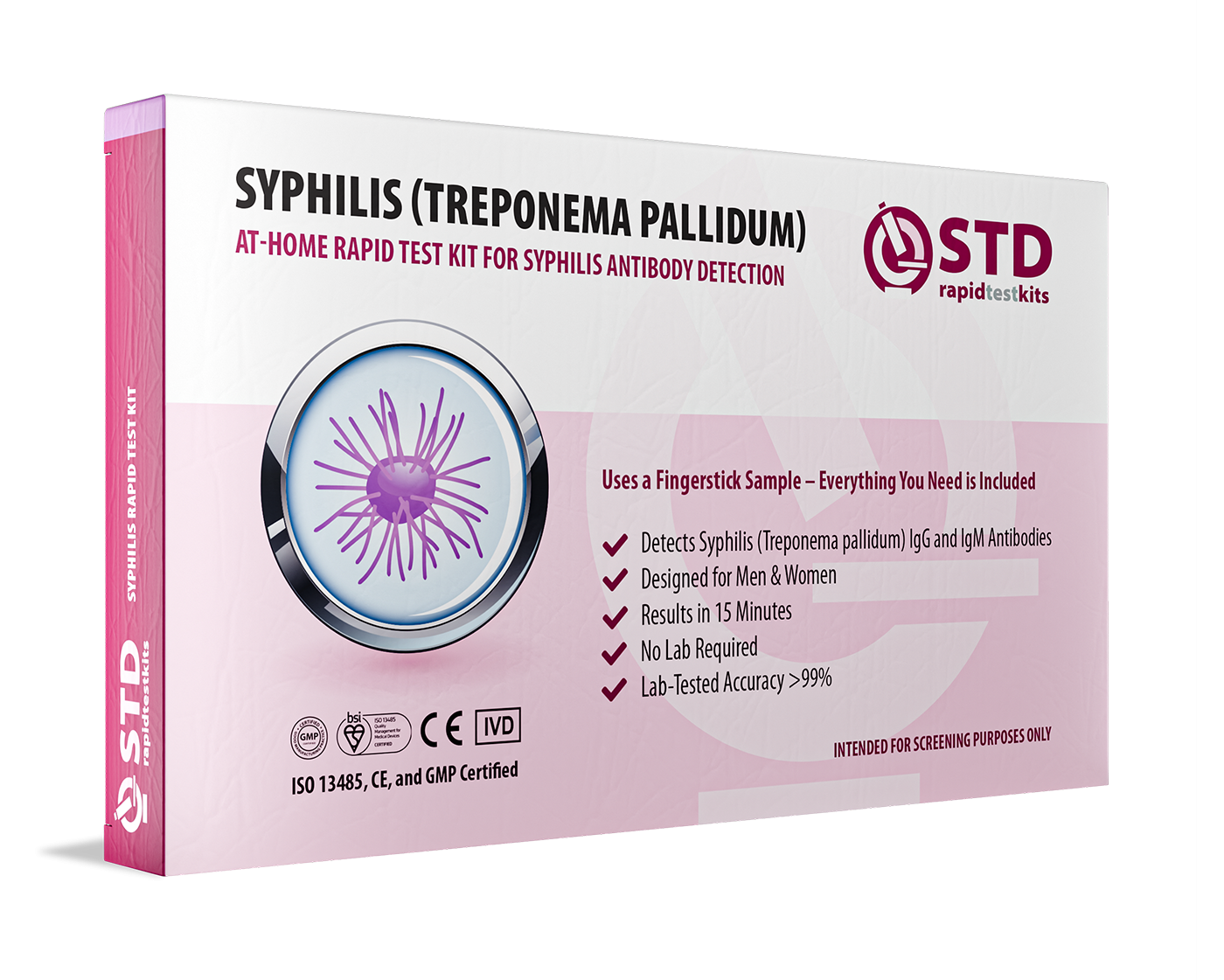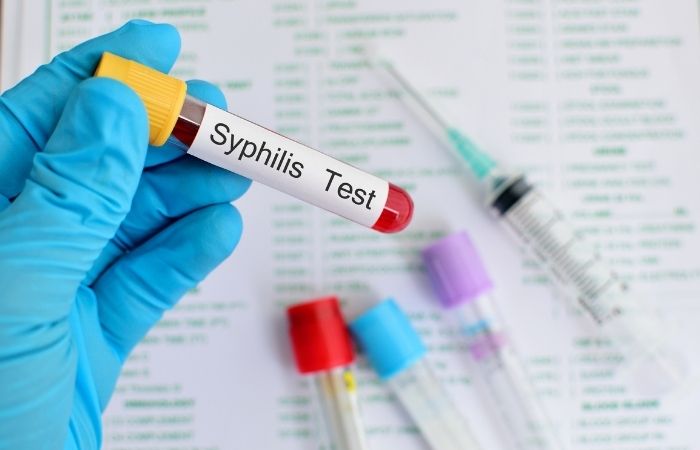Quick Answer: Mississippi has the highest congenital syphilis rate in the U.S. due to gaps in prenatal testing, rising adult infections, and limited rural access to care. Early testing, including at‑home screening, can help stop the spread and protect newborns.
“I Didn’t Know Until It Was Too Late”
Kendra, 22, thought her pregnancy was going smoothly. She missed one prenatal appointment when her car broke down outside Greenwood, figuring she would make it up the next month. She never imagined that in that small gap, a silent infection was growing. When her son was born, he struggled to breathe. Doctors told her he tested positive for syphilis contracted in the womb. “I didn’t even know I had it,” she whispered to the social worker, eyes fixed on the bassinet.
This is the human face of Mississippi’s crisis. Congenital syphilis isn’t just a statistic. It’s a disease that steals breath from newborns, causes rashes and swollen livers, and in the worst cases, leads to stillbirth. Many mothers never realize they’re infected, because syphilis can hide in the body without obvious symptoms. The rise of adult syphilis infections in Mississippi, especially in rural areas with limited clinic access, means more babies are born carrying a fight they never asked for.
Doctors and public health officials trace the problem to a mix of issues: reduced prenatal care visits, clinic closures in rural counties, and a surge in untreated STDs in adults. But under all of it is a shared reality: testing doesn’t always reach the people who need it most. And when testing comes late, or not at all, the consequences can be lifelong.

People are also reading: Why Black Communities Face the Highest STD Rates, And What No One’s Fixing
The Perfect Storm Behind Mississippi’s Syphilis Surge
In 2024, Mississippi reported the highest congenital syphilis rate in the nation, with cases rising more than 900% over the past decade. For many outside the state, this might feel like a statistic on a CDC chart. But in towns from Clarksdale to Laurel, it shows up as real babies in NICUs and mothers grappling with guilt they should never have to carry. Doctors say it’s a storm of several forces colliding: rising adult syphilis cases, patchy prenatal care, and a health system stretched thin in rural communities.
Dr. Harris, a family physician in the Delta, describes a typical day that reveals the cracks in the system.
“I see patients who drive an hour to reach us. If their car breaks down or they can’t get off work, that’s another month without a test.”
He recalls a mother who came in at 34 weeks pregnant, excited to hear her baby’s heartbeat. Routine bloodwork revealed untreated syphilis. “We rushed to treat her,” he said, “but the baby still tested positive after birth. We caught it late, but at least we caught it.”
The reality is, syphilis often hides. It may start as a small sore that heals on its own, then disappear for months while quietly attacking the body. Adults can carry it for years without knowing, passing it to partners or to a baby during pregnancy. When testing is missed, whether because a clinic is too far, appointments are booked out, or stigma keeps someone away, the infection silently continues its path.
Mississippi’s geography makes the problem worse. Large swaths of the state are rural, with hospital closures leaving residents hours from reliable care. Public health officials have sounded the alarm, but a pamphlet or press release rarely competes with the daily realities of life, jobs, childcare, gas money, and the worry of being judged in a waiting room.
Inside the Clinic: A Nurse’s Story
On a humid August morning in Hattiesburg, Nurse Lila checked in a young mother for what should have been a routine prenatal visit. She’d seen this patient once before, months earlier, and had urged her to return for follow-up labs.
“She told me she didn’t want anyone in town to see her walking into the clinic,”
Lila said. “She was scared of what people would think if she was here for an STD test.”
That fear is a quiet driver of this crisis. In small towns, privacy is scarce, and stigma travels faster than lab results. Lila drew blood, sent it to the state lab, and a few days later, the call came: positive for syphilis. Treatment started immediately, but the baby still faced weeks of antibiotics after birth. “I think about that baby every day,” Lila said, “and I think about all the mothers who never even get to this point because they don’t come in at all.”
It’s a cycle that repeats across Mississippi. Stigma keeps people from testing. Distance keeps them from clinics. And untreated infections pass silently to the next generation. Breaking that cycle will take more than awareness. It will take options that meet people where they are, literally at their doorstep.
Check Your STD Status in Minutes
Test at Home with RemediumSyphilis Test Kit

 For Men & Women
For Men & Women Results in Minutes
Results in Minutes No Lab Needed
No Lab Needed Private & Discreet
Private & DiscreetOrder Now $33.99 $49.00
Meeting the Crisis Where It Lives
In a shotgun house on the edge of Yazoo City, Latasha sat at her kitchen table staring at a small white box. It wasn’t baby clothes or formula, it was an at‑home syphilis test. After missing her last prenatal visit, she couldn’t shake the fear she might have waited too long. She swabbed, followed the instructions, and sent the sample off. A few days later, she got the call: negative. Relief washed over her. “I didn’t have to wait for a ride, and I didn’t have to explain anything to anyone in town,” she said. “I felt like I finally had control.”
Stories like Latasha’s are why public health experts say solutions have to meet people where they are. Clinic access will always matter, but it’s not enough in a state where some residents are hours from the nearest OB/GYN and gas prices compete with grocery bills. The longer a test is delayed, the higher the risk for babies who can’t wait for the system to catch up. That’s where at‑home testing becomes a lifeline. It removes the biggest barriers, time, transportation, and stigma, by putting the first step toward prevention in the hands of the people who need it most.
Mississippi’s congenital syphilis crisis isn’t about personal failure. It’s about a system that lets infections hide in silence. Regular testing, whether in a clinic or at home, is the single most powerful tool to break the chain. It turns “I didn’t know” into “I took action.” And every action counts. A negative test today means a baby spared tomorrow. A positive test caught early means treatment that can prevent lifelong damage. Every story of testing is a story that ends with choice instead of chance.
Protecting Families, One Test at a Time
For families across Mississippi, the path to prevention is simpler than it sounds: get tested, get treated if necessary, and keep testing when risk exists. What changes is how easy that first step feels. In Jackson, Devon and Mia shared that an at‑home kit was the only reason they tested between pregnancies. “We didn’t want to walk into a clinic and see half our church there,” Devon admitted with a nervous laugh. “But doing it at home? No one had to know but us.”
The state’s health department continues to urge in‑person testing, but at‑home testing offers a bridge for those who would otherwise go untested entirely. It can’t replace medical care, but it can start the chain reaction that leads to it. And for rural residents or anyone facing stigma, that first private step can be the difference between a healthy newborn and a life changed before it begins.
If you live in Mississippi and are pregnant, thinking about pregnancy, or sexually active in a county with rising syphilis rates, the safest choice is to take action now. Don’t wait for a clinic day that might never come. At‑home syphilis and STD test kits are discreet, reliable, and put the power back in your hands. The sooner you know, the sooner you protect yourself and the next generation of Mississippi babies.

People are also asking: Is It an STD or Something Else?
Turning Fear Into Action: Everyday Ways to Prevent Syphilis
Prevention in Mississippi doesn’t start with a lecture; it starts in living rooms, at kitchen tables, and in the quiet spaces where people decide to take control of their health. It often begins with a whisper, not a headline. Shawna, 19, remembers the night she sat in her cousin’s trailer, scrolling on her phone and reading about congenital syphilis for the first time. She had never thought much about STDs. She wasn’t pregnant, but her cousin was, and the news about rising cases in the Delta felt too close to ignore. That night, they made a pact to get tested together. For Shawna, prevention started as a shared secret and became a habit.
The first step in protecting yourself and future babies is testing early and more than once if you’re pregnant or planning to be. Mississippi’s health officials recommend a test in the first trimester, again later in pregnancy, and anytime you think you’ve been exposed. Waiting for symptoms isn’t enough. Syphilis is quiet when it wants to be, sneaking past those who assume no news means good news.
Protection also lives in the choices we make with partners. Condoms and dental dams don’t erase the risk completely, but they create a shield that makes transmission harder. Adding lube can help prevent the tiny tissue tears where infections slip in. It’s a small step that carries more weight than most people realize. And these conversations, about condoms, about safety, aren’t just medical, they’re emotional. Every honest talk is a form of care for the person next to you.
Then there’s the part no one likes to talk about: treatment. In Mississippi, many people avoid care because they fear the judgment of a waiting room or the questions that follow. But treatment is fast, simple, and lifesaving. One round of antibiotics can erase the infection and protect your baby if you catch it in time. Reggie, 28, said he almost skipped his appointment after testing positive at home because he was embarrassed. “Then I thought about what the nurse said, ‘If you treat it now, it ends with you.’ That stuck with me,” he shared. He walked into the clinic the next day, and a week later, he walked out with peace of mind.
Prevention isn’t about perfection. It’s about small, real choices stacked on top of each other. It’s about knowing your status before the virus or bacteria has a chance to pass on. It’s about turning fear into action, testing when you can, treating when you need to, and talking openly with the people you trust. In Mississippi, where babies are being born with a disease we know how to stop, prevention is more than a personal act. It’s a community promise that tomorrow can look different if we choose it.
Check Your STD Status in Minutes
Test at Home with Remedium8-in-1 STD Test Kit

 For Men & Women
For Men & Women Results in Minutes
Results in Minutes No Lab Needed
No Lab Needed Private & Discreet
Private & DiscreetOrder Now $149.00 $392.00
For all 8 tests
FAQs
1. Why is congenital syphilis so high in Mississippi?
Rising adult syphilis cases, gaps in prenatal testing, rural clinic closures, and stigma around STD care all contribute to the state’s record‑high rates.
2. Can babies die from congenital syphilis?
Sadly, yes. Congenital syphilis can lead to stillbirth, premature birth, organ damage, and lifelong complications if left untreated. Early testing and treatment save lives.
3. How does a pregnant woman know if she has syphilis?
Most women don’t. Syphilis can be symptom-free for months or even years. Only a blood test can confirm if you are infected.
4. Does syphilis only affect people with multiple partners?
No. Anyone who is sexually active can contract syphilis, even in a monogamous relationship if one partner is unaware they are infected.
5. Can syphilis be treated during pregnancy?
Yes. Penicillin treatment is safe and highly effective for both mother and baby if given early enough.
6. When should pregnant women in Mississippi get tested?
Ideally in the first trimester, again in the third trimester, and any time you believe you may have been exposed.
7. Are at‑home syphilis tests reliable?
Yes. FDA‑approved at‑home tests are accurate when instructions are followed, and they allow discreet screening for those with limited access to clinics.
8. What if I test positive at home?
Talk to a doctor as soon as possible, as early treatment can help prevent complications and, if done early enough, might even save your baby from infection.
9. Do condoms fully prevent syphilis?
Condoms lower the risk but do not guarantee 100% protection because sores can appear outside covered areas. Testing is still essential.
10. How can communities help stop this crisis?
By normalizing testing, supporting pregnant women in rural areas, and reducing stigma around STDs. Every conversation and test matters.
You Can Change the Story for Mississippi Babies
In Mississippi, too many newborns are starting life with a fight they never asked for. Congenital syphilis is not a distant problem, it’s here, in our towns, our neighborhoods, and sometimes in our own families. But the story doesn’t have to end in fear or loss. Each test taken, each conversation shared, and each treatment completed is a small victory against a disease we know how to stop.
If you’re pregnant, thinking of becoming pregnant, or simply sexually active in our state, testing isn’t just about you, it’s about the next generation. Don’t wait for a clinic day that might not come. This discreet at‑home STD and syphilis test kit lets you take control of your health from the privacy of home. One small step today can mean a lifetime of health for a baby tomorrow.
Sources
1. CDC – State‑Ranked Rates of Congenital Syphilis (2023 data)
2. JAMA Health Forum – Resurgent Maternal and Congenital Syphilis in Mississippi
3. AAP Grand Rounds – Dramatic Rise in Congenital Syphilis Rates
4. Mississippi Today – UMMC Receives $1M to Combat Syphilis Crisis
5. PMC – Hospitalizations for Congenital Syphilis in Mississippi (10‑fold rise 2016–2022)
6. BMJ – Congenital Syphilis in Mississippi: Public Health Failures










